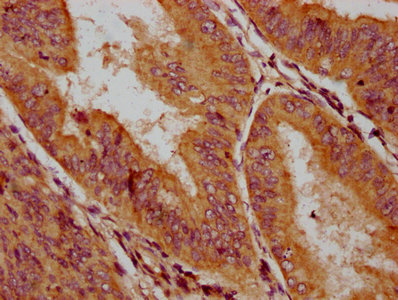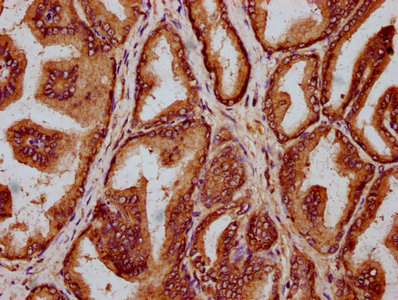Full Product Name
Rabbit anti-Homo sapiens (Human) HLCS Polyclonal antibody
Alternative Names
Biotin [acetyl CoA carboxylase] ligase antibody; Biotin [methylcrotonoyl CoA carboxylase] ligase antibody; Biotin [methylmalonyl CoA carboxytransferase] ligase antibody; Biotin [propionyl CoA carboxylase [ATP hydrolyzing]] ligase antibody; Biotin apo protein ligase antibody; Biotin apo-protein ligase antibody; Biotin protein ligase antibody; Biotin--[acetyl-CoA-carboxylase] ligase antibody; BPL1_HUMAN antibody; HCS antibody; HLCS antibody; Holocarboxylase synthetase antibody; Holocarboxylase synthetase, EC 6.3.4 antibody
Immunogen
Recombinant Human Biotin--protein ligase protein (603-714AA)
Immunogen Species
Homo sapiens (Human)
Conjugate
Non-conjugated
The HLCS Antibody (Product code: CSB-PA010518LA01HU) is Non-conjugated. For HLCS Antibody with conjugates, please check the following table.
Available Conjugates
| Conjugate |
Product Code |
Product Name |
Application |
| HRP |
CSB-PA010518LB01HU |
HLCS Antibody, HRP conjugated |
ELISA |
| FITC |
CSB-PA010518LC01HU |
HLCS Antibody, FITC conjugated |
|
| Biotin |
CSB-PA010518LD01HU |
HLCS Antibody, Biotin conjugated |
ELISA |
Purification Method
>95%, Protein G purified
Concentration
It differs from different batches. Please contact us to confirm it.
Buffer
Preservative: 0.03% Proclin 300
Constituents: 50% Glycerol, 0.01M PBS, pH 7.4
Tested Applications
ELISA, IHC
Recommended Dilution
| Application |
Recommended Dilution |
| IHC |
1:200-1:500 |
Storage
Upon receipt, store at -20°C or -80°C. Avoid repeated freeze.
Lead Time
Basically, we can dispatch the products out in 1-3 working days after receiving your orders. Delivery time maybe differs from different purchasing way or location, please kindly consult your local distributors for specific delivery time.
Usage
For Research Use Only. Not for use in diagnostic or therapeutic procedures.








